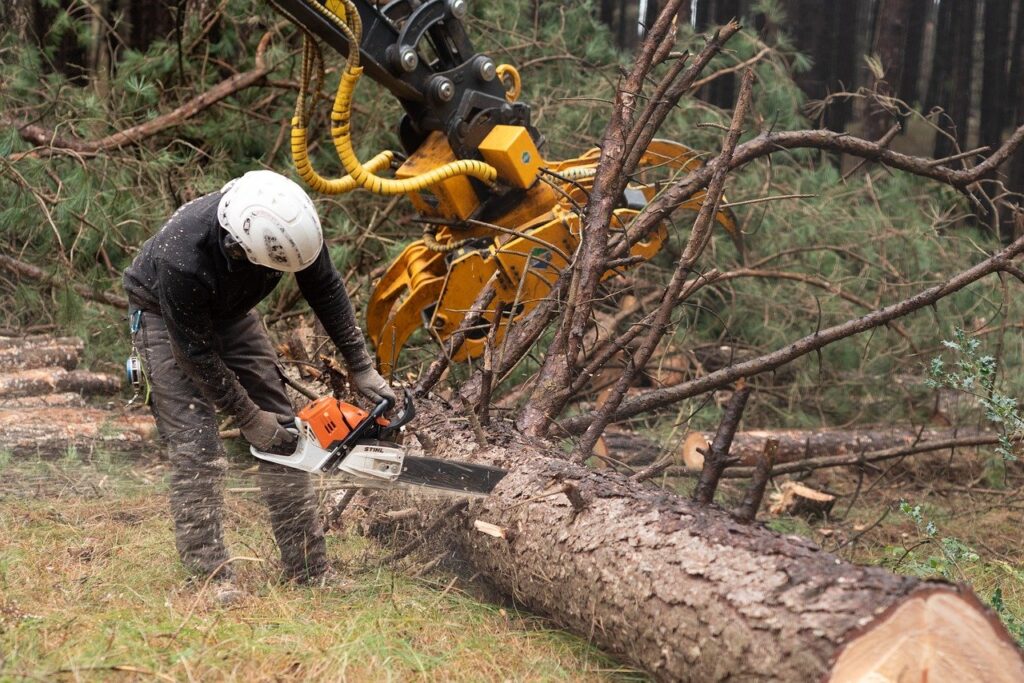Forestry, the art and science of managing forests, has evolved into a dynamic field with a wide array of rewarding careers. From the traditional roles of forestry management to emerging opportunities in wildlife conservation and urban forestry, this article delves into the top careers that define the landscape of the forestry sector.
Overview of Forestry Careers
The forestry field is diverse, offering a wide range of career paths that cater to different interests and skills. Forestry professionals work in various environments, including forests, urban areas, research facilities, and government agencies. The careers in this field often require a strong foundation in biology, ecology, environmental science, and resource management.
To pursue a career in forestry, individuals typically need a relevant degree, such as a Bachelor’s in Forestry, Environmental Science, or a related field. Many positions also require specialized training, certifications, and practical experience. Additionally, strong analytical, problem-solving, communication, and teamwork skills are essential in forestry careers, as professionals often collaborate with other stakeholders, including government agencies, non-profits, and local communities.
In the heart of this sector lies fieldwork, the hands-on aspect that many associate with forestry. Fieldwork careers involve the active management and conservation of forests, with professionals often working on the frontline to monitor and protect these vital ecosystems. However, the roles within forestry also reach into the realms of conservation and environmental science, with dedicated individuals focused on protecting wildlife habitats and ensuring the health of forested landscapes.
Management roles in forestry merge administrative duties with a deep understanding of ecological principles. These professionals strategize and implement plans for forest sustainability, balancing economic objectives with environmental considerations. Their work is critical in guiding the use and preservation of forest resources for future generations.
With the rapid advancement of technology, forestry jobs now integrate cutting-edge tools and data analysis to enhance forest management practices. From Geographic Information System (GIS) specialists to remote sensing analysts, technology careers in forestry utilize the power of data to inform decision-making and policy development for forest conservation and land use planning.
Each career path within forestry contributes to a larger mission: the conservation of our planet’s forests and the promotion of a sustainable relationship between humanity and the natural world. It’s this blend of fieldwork, conservation, management, and technology that makes forestry careers not only diverse but also critical for our collective future.

Oregon State University
Undergraduate Degrees in Forest Restoration + Fire, Forest Management, and Forest Operations
Top Forestry Careers
Below is a list of the top forestry careers that you can pursue.
Forester
Role and Responsibilities
Foresters are responsible for managing forested lands for various purposes, including timber production, wildlife habitat preservation, and recreation. Their duties may involve conducting surveys, developing management plans, implementing conservation practices, and monitoring forest health.
Required Education and Skills
Most foresters hold a Bachelor’s degree in Forestry, Forest Resource Management, or a related field. Coursework typically includes forest ecology, silviculture, and environmental policy. Key skills for foresters include analytical thinking, problem-solving, communication, and knowledge of forestry laws and regulations.
Job Outlook and Opportunities
The job outlook for foresters is promising, with employment projected to grow as more emphasis is placed on sustainable forest management. Opportunities exist in government agencies, private industry, and non-profit organizations focused on conservation.
Wildlife Biologist
Role in Studying Wildlife and Ecosystems
Wildlife biologists study animals and their habitats, focusing on conservation, population dynamics, and ecosystem health. They may conduct field studies, collect data, and analyze the impacts of human activity on wildlife.
Education and Necessary Certifications
A Bachelor’s degree in Wildlife Biology, Ecology, or a related field is typically required. Advanced positions may require a Master’s or Doctorate. Certifications, such as those offered by the Wildlife Society, can enhance job prospects.
Career Growth and Areas of Demand
The demand for wildlife biologists is increasing, particularly in areas with significant biodiversity and conservation efforts, such as the Pacific Northwest and parts of the Southeast. Careers may be available in government agencies, non-profit organizations, and research institutions.

Stephen F. Austin State University
BS in Forestry
Forest Technician
Overview of Job Duties and Daily Tasks
Forest technicians assist foresters by conducting fieldwork, collecting data, and performing tasks related to forest management. They may be involved in timber inventory, pest control, and planting trees.
Educational Background and Certifications Needed
A two-year degree in forestry or a related field is typically required for this position. Some employers may prefer candidates with certifications in areas such as pesticide application or forestry practices.
Employment Opportunities and Job Outlook
Forest technicians are in demand in both private and public sectors. Job opportunities are expected to grow as forest management practices become more widespread and critical to sustainable land use.
Conservation Scientist
Description of the Role in Managing Land Resources
Conservation scientists manage and protect natural resources, working to ensure sustainable land use practices. Their responsibilities include conducting research, developing land management plans, and collaborating with landowners and government agencies.
Education and Relevant Skills
A Bachelor’s degree in Environmental Science, Forestry, or a related field is generally required. Skills in data analysis, environmental policy, and communication are essential for success in this role.
Growth Potential and Areas of Work
The need for conservation scientists is expected to rise, especially in regions facing environmental challenges such as climate change and habitat loss. Opportunities exist in governmental agencies, non-profits, and consulting firms.

Northern Arizona University
BS in Forestry and BS in Wildland Fire Science
Forest Ecologists
Focus on Ecosystem Health and Forest Management Practices
Forest ecologists study forest ecosystems, focusing on biodiversity, ecosystem services, and the impacts of human activities. They conduct research and contribute to the development of sustainable management practices.
Educational Background and Skills Required
A Master’s or Doctorate in Ecology, Environmental Science, or a related field is often necessary. Strong analytical, research, and communication skills are crucial for success in this role.
Job Prospects in Research and Conservation
Opportunities for forest ecologists are growing, particularly in research institutions, governmental agencies, and conservation organizations. Their expertise is vital in addressing environmental issues and promoting sustainable forest management.
Urban Forestry Specialists
Role in Managing Urban Forests and Trees
Urban foresters focus on managing trees and green spaces in urban environments, promoting the benefits of urban forestry for air quality, aesthetics, and community well-being. Their work may involve tree planting, maintenance, and public education.
Education Requirements and Certifications
A degree in Urban Forestry, Horticulture, or Landscape Architecture is typically required. Certifications from organizations like the International Society of Arboriculture (ISA) can enhance job prospects.
Job Opportunities in Urban Planning and Development
As cities grow, the demand for urban foresters is increasing, especially in metropolitan areas looking to enhance their green spaces and improve environmental sustainability. Employment opportunities can be found in city government agencies, non-profits, and landscape firms.

Oregon State University
BS in Environmental Sciences
Forest Products Specialists
Overview of Working with Timber and Forest Products
Forest products specialists focus on the sustainable harvesting and processing of timber and non-timber forest products. They work to balance economic needs with conservation goals.
Educational Requirements and Industry Knowledge
A degree in Forestry, Wood Science, or a related field is generally required. Knowledge of timber markets, forest management practices, and sustainability is essential.
Career Paths and Growth Opportunities
As the demand for sustainable wood products increases, opportunities for forest products specialists are expanding in both private industry and government sectors. Professionals in this field can work in product development, sales, and marketing of forest products.

American Military University
Online Bachelor of Science in Environmental Science
Fire Ecologist
Focus on Understanding Fire’s Role in Ecosystems
Fire ecologists study the ecological effects of fire on landscapes and ecosystems. They research fire behavior, impacts on wildlife, and the role of fire in maintaining healthy ecosystems. Their work informs land management practices and helps develop strategies for fire prevention and recovery.
Educational Background and Skills Required
A Master’s or Doctorate in Ecology, Environmental Science, or a related field is typically necessary. Strong analytical and research skills are essential for this role.
Job Prospects in Research and Conservation
Opportunities for fire ecologists exist in research institutions, governmental agencies, and conservation organizations. Their expertise is critical for developing sustainable fire management practices.

Environmental Consultant
Role in Advising on Environmental Impacts and Sustainability
Environmental consultants provide expertise on the environmental impact of projects, helping clients comply with regulations and implement sustainable practices. They conduct assessments and develop management plans.
Necessary Education and Skills
A Bachelor’s degree in Environmental Science, Forestry, or a related field is typically required. Strong analytical and communication skills are crucial for success in this role.
Demand for Consultants in Various Sectors
The demand for environmental consultants is on the rise, especially in industries such as construction, energy, and government. Professionals in this field play a vital role in promoting environmental sustainability and compliance with regulations.

William Paterson University
BS in Environmental Science
In-Demand Forestry Careers
As the guardians of our forests and natural resources, forestry professionals play a pivotal role in environmental conservation and management. The demand for skilled individuals in this field is ever-growing, as is the need to sustainably manage our woodlands. Focusing on the most sought-after positions, forestry technicians, silviculturists, and procurement foresters stand out as careers with significant growth potential and opportunities.
Forestry Technicians
Forest Technicans are the backbone of forest management, often working on the front lines to collect data, assist in research, and support the implementation of forestry projects. Their hands-on approach and technical expertise make them indispensable in managing forest resources effectively. With a growing emphasis on sustainable practices, their role becomes even more crucial, ensuring our forests continue to thrive for generations to come.
Silviculturists
Silviculturists, experts in the growth and development of forest trees, combine a deep understanding of ecology with practical forestry techniques. They design and execute management plans that promote healthy forests, balancing ecological needs with commercial interests. Their work not only supports the timber industry but also plays a critical role in biodiversity conservation and climate change mitigation.
Procurement foresters
Procurement foresters bridge the gap between forest operations and the market. They are responsible for acquiring timber from forests while ensuring that harvesting practices meet sustainability standards. Their strategic position requires a blend of negotiation skills, market knowledge, and a strong commitment to environmental ethics. As the forestry industry continues to navigate the balance between resource use and conservation, procurement foresters are key to achieving those goals.

University of Kentucky
Urban and Community Forestry Certificate
Emerging Careers in Forestry
As the field of forestry evolves, new career opportunities are emerging, driven by advancements in technology and changing environmental challenges.
1. Drone Operators for Forest Monitoring
Drones are increasingly being used in forestry for monitoring forest health, mapping land, and assessing timber inventory. Drone operators with knowledge of forestry principles and technology are in demand.
2. Climate Change Analysts
With growing concerns about climate change, analysts specializing in its impact on forestry and natural resources are needed. They assess risks, develop mitigation strategies, and help organizations adapt to changing conditions.
3. GIS Specialists
Geographic Information Systems (GIS) technology is crucial in forestry for mapping, data analysis, and resource management. Specialists in this field help manage and analyze spatial data to inform decision-making.
These emerging careers highlight the importance of adapting to new challenges and leveraging technology in forestry.

Auburn University
Graduate Certificate Program in Forest Finance & Investment
Degree Pathways into a Career in Forestry
Here’s a list of degrees that can help someone pursue a career in forestry:
1. Forestry
- Overview: A direct path to a career in forestry, this degree focuses on forest ecosystems, management, conservation, and sustainable practices.
- Career Paths: Forester, Forest Manager, Conservation Scientist, Urban Forester
2. Environmental Science
- Overview: Offers a broad understanding of ecosystems and environmental issues, preparing students for work in forest conservation and resource management.
- Career Paths: Environmental Scientist, Forest Ecologist, Conservation Biologist

Penn State University
BS in Wildlife and Fisheries Science
3. Wildlife and Fisheries Science
- Overview: Focuses on the management and conservation of wildlife and fish populations, which is closely tied to forestry and habitat preservation.
- Career Paths: Wildlife Manager, Fisheries Biologist, Habitat Conservationist
4. Natural Resources Management
- Overview: Prepares students to manage natural resources, including forests, with an emphasis on sustainability and balancing conservation with human use.
- Career Paths: Natural Resource Manager, Park Ranger, Forest Policy Analyst
5. Ecology
- Overview: Studies the relationships between organisms and their environments, making it applicable to forest ecosystem health and biodiversity conservation.
- Career Paths: Ecologist, Forest Restoration Specialist, Environmental Consultant
6. Fire Science
- Overview: A specialized degree focusing on fire prevention, suppression, and management, often crucial for forest fire management roles.
- Career Paths: Wildland Firefighter, Fire Management Officer, Fire Ecologist

Oregon State University
BS in Fisheries, Wildlife, and Conservation Sciences
7. Botany
- Overview: The study of plant biology, which is essential for understanding forest vegetation, species diversity, and reforestation efforts.
- Career Paths: Botanist, Forest Plant Specialist, Conservation Scientist
8. Geography
- Overview: Provides skills in mapping and spatial analysis, which can be applied to forest management, land use planning, and conservation efforts.
- Career Paths: GIS Specialist, Forest Planner, Remote Sensing Analyst
9. Sustainable Agriculture
- Overview: Teaches principles of sustainable land management, with a focus on the balance between agriculture and forestry.
- Career Paths: Agroforestry Specialist, Forest Conservationist, Sustainable Land Manager

The University of British Columbia
Bachelor of Urban Forestry
10. Hydrology
- Overview: Studies the water cycle and water management, important for understanding the role forests play in watershed health and water quality.
- Career Paths: Hydrologist, Watershed Manager, Forest Water Resources Specialist
11. Conservation Biology
- Overview: Focuses on the preservation of biodiversity and natural habitats, including forests, with a strong emphasis on conservation strategies.
- Career Paths: Conservation Biologist, Forestry Conservationist, Wildlife Biologist
12. Urban Forestry
- Overview: A specialized field focused on managing and conserving trees in urban areas, balancing ecological health with human development.
- Career Paths: Urban Forester, Arborist, City Planner (forestry focus)
13. Agriculture
- Overview: Offers a broader look at land management, which can be applied to agroforestry, reforestation, and sustainable forest management.
- Career Paths: Agroforestry Manager, Forest Land Manager, Agricultural Forester

Unity Environmental University
BS in Wildlife Conservation; Master of Science in Wildlife Ecology and Management
14. Environmental Policy and Planning
- Overview: Prepares students for roles in developing policies for sustainable forest management and environmental conservation.
- Career Paths: Policy Analyst, Environmental Planner, Forestry Consultant
These degrees can provide a strong foundation for various careers in forestry, from hands-on forest management to policy and conservation efforts. Many programs offer specialization options that can help students tailor their education to their specific forestry career goals.
Pros and Cons of Forestry Careers
Embarking on a career within the forestry sector offers a unique blend of advantages that cater to those passionate about the environment and interested in actively contributing to its sustainability. The allure of forestry careers often lies in the tangible impact professionals make in conserving natural resources and shaping environmental policies. Individuals in this field frequently report high levels of job satisfaction, stemming from their direct involvement in protecting and managing forests, which are crucial ecosystems for our planet.
Forestry careers also allow for a commendable work-life balance, with many positions offering the opportunity to spend time outdoors, away from the typical office environment. This natural office space can lead to a fulfilling work experience that combines physical activity with the serenity of nature, appealing to those who thrive outside conventional work settings.
However, as with any career, there are challenges to consider. Forestry work can sometimes be physically demanding and may require working in remote locations or under varying weather conditions. The sector is not immune to economic fluctuations, which can impact job stability in certain forestry industries, such as timber. Moreover, professionals in this field must stay abreast of the latest environmental regulations and sustainable practices, which necessitates a commitment to continuous learning and adaptation.
Prospective forestry professionals need to weigh these pros and cons carefully, ensuring their career decisions align with both their personal values and professional aspirations. By fostering a realistic understanding of the forestry sector, individuals can embark on a career path that not only supports their growth but also contributes positively to environmental conservation efforts.

Elmira College
BA/BS in Environmental Science
Forestry’s Future Path
The world of forestry offers a diverse range of careers, each contributing to the preservation and sustainable use of our vital forest ecosystems. Whether you are passionate about managing forests, conserving wildlife, utilizing technology, or educating communities, there is a rewarding career waiting for you in forestry. As we face environmental challenges, the individuals in these roles play a crucial part in ensuring a harmonious balance between human activities and the health of our forests. Explore your interests, pursue relevant education, and consider the vast impact you can make in the ever-evolving field of forestry.
Resources
Society of American Foresters: https://eforester.org/
American Forests: https://www.americanforests.org/
U.S. Department of Agriculture – Forest Services: https://www.fs.usda.gov/

